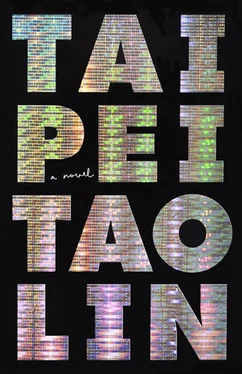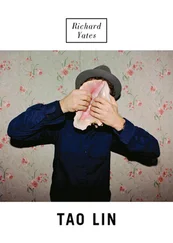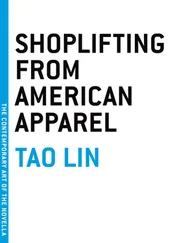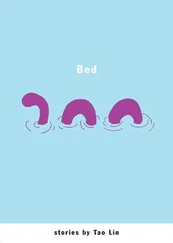In Los Angeles, the night before a panel discussion at UCLA on the topic of hipsters, after privately ingesting a little LSD, half a capsule of MDMA, a Ritalin — the combination of which, at Paul’s tolerance levels, had the effect of slightly distorting and energizing his base feeling of depression, so that he also felt many of its related emotions, such as despair and aggravation — he was designated, for some reason, to drive an NPR contributor’s car to a house party on the steepest street he had ever seen in person. After the house party, in a bar staffed by Asians, with Chinese and Vietnamese food, Paul saw and approached Taryn, who seemed happy to see him, to his mild surprise (they’d only met once and vaguely, at the party where Paul put on “Today” by the Smashing Pumpkins). Taryn and a younger, sibling-like man, who at times seemed to be her boyfriend, but remained at a distance most of the night, went with Paul and the moderator of the next day’s panel discussion and other people to an apartment whose only purpose, someone kept saying, was for partying in when bars had closed. Paul felt the same mysterious, vague attraction to Taryn he felt in Brooklyn but unlike then, when they’d spoken probably three sentences to each other, they talked continuously, energetically. Taryn said she moved here a month ago after securing a full-time job as a copywriter for a fashion website, where her coworkers did, or did not — Paul became confused which, at some point, after realizing he’d laughed at both — know she had an MFA in poetry. Paul gradually remembered Taryn was friends with Caroline, that she and Caroline — and many of Paul’s acquaintances, including Shawn Olive, in Brooklyn — had been in the same one to three graduating classes for their MFAs in poetry at the New School and that most, or all, of them, as part of their curriculum, had read Paul’s first poetry book that he wrote the summer after graduating, in 2005, with a BA in journalism. The moderator of the next day’s panel discussion approached Paul and Taryn and said he had bought cocaine for them from a former Olympic soccer player whose father, before recently dying, had operated a major drug cartel. Paul and Taryn were led to a dresser, scattered on which were playing cards. The former Olympic soccer player indicated a six of spades, beneath which was twenty dollars’ worth of cocaine.
On UCLA’s campus the next night Paul photographed a piece of computer paper, taped crudely to a column, that said HIPSTER PANEL with an arrow pointing literally at the sky. In emails with the moderator of the panel discussion the past few weeks Paul had repeatedly half joked that he was going to “dominate the panel” and now, backstage peaking on one and a half capsules of MDMA and two Ritalin and an energy drink, he began openly conveying the same message to the other seven panelists, including a cofounder of Vice, the only person getting paid, everyone seemed to know, who was shirtless with 20oz beer and reacted to Paul’s robot-like extroversion with what seemed like barely suppressed confusion, which Paul tried to resolve by overpowering any possible awkwardness with his temporary charisma, which resulted in what seemed to be intimidation but was maybe an intimidation-based attempt at a non-antagonistic guardianship, which caused Paul, who felt he solely wanted to interact with mutual sincerity, to hesitate a little, which maybe the cofounder of Vice sensed as anxiety because he slapped Paul’s shoulder three times painfully. In his state of medium euphoria, with intensely dull eyes and an overall cyborg-like demeanor, Paul stared briefly at the cofounder of Vice before turning around and moving away with an earnest, uncertain feeling of disappointment. Paul arguably dominated the panel in a private way by multitasking (1) earnestly speaking on the topic of hipsters with uncharacteristic willingness to engage a matter of semantics (2) photographing other panelists and the audience and recording two videos with his iPhone (3) tweeting three times (4) interrupting people two or three times to defend audience members from the cofounder of Vice ’s fashion criticisms (5) sustaining text conversations with Mia, who around a year ago had messaged Paul on Facebook, and Taryn, both of whom were alone in the audience of three to four hundred students and twenty to forty journalists (6) being asked the most questions during the Q&A, though almost all were negative and partially rhetorical, including why he kept writing after the “excrement” that was his previous book.
After the Q&A, during which Taryn had left due to a prior obligation, Paul talked a few minutes to Mia, vaguely remembering that she had lived, or something, in Crispin Glover’s “castle,” and wanted to spend more time with her, or Taryn, or the moderator, or the other panelists, at whatever post-panel party was probably beginning, but was driven in a sort of rush to the airport by two UCLA students, who in the front seats, talking to each other in voices Paul couldn’t hear, for some reason, maybe because a window was open, seemed far away and illusory. At the airport Paul saw he had another voice mail from his publisher and felt dread, then realized he was accidentally listening to it and that it was over — a six-second message asking Paul to “please” call them. Paul rested his head on his dining tray, mostly facedown and awake, during the flight to Minnesota, where after six hours of a seven-hour layover, a few minutes after putting his things in his backpack and standing to wait to get on a plane, he got a long email from his mother, saying she knew she had promised she wouldn’t anymore, but felt that she must, as a parent, continue telling Paul that she disapproved of his drug use. Paul could feel his intensely aggravated expression as he typed around three thousand words of stream-of-consciousness information about drugs and why the only way his mother could influence him to use less would be if she didn’t view them as good or bad, but learned about them, as a friend instead of a parent, because he was 27, all of which he’d stated, he knew, clearer and more convincingly, in dozens of emails the past four months to seemingly no lasting effect. His mother replied in a manner like his email — the longest he’d sent from an iPhone — had no effect on her and he replied again, expressing futility, then flew to Philadelphia, where after a bleakly sober reading in a tiny bookstore, which sold only used and rare books, he slept on a mostly empty bus, dropping him off in Brooklyn’s Chinatown, a place he’d forgotten existed.
In his room, around 2:30 a.m., he read a 2:12 a.m. email from Erin that said she’d “been using a lot of mental space to think about definitely ending a yearlong, ‘on-and-off,’ semi-vague relationship and actually did tonight”—in reference to someone named Beau — and that she was aware of the insufficiency of her email, half the length of Paul’s email, from nine days ago, but wanted to say before sleeping that she was still coming, if it was “still okay,” she said, to Paul’s reading tomorrow and would bring the psilocybin chocolates Paul left with her one month ago as previously discussed.
Increasingly, as his memory occupied less of his consciousness, the past four to six months, whenever Paul sensed familiarity in the beginnings of a thought or feeling he would passively focus on intuiting it in entirety, predicting its elaboration and rhetoric in the presence of logic and world-view like a ball’s trajectory and destination in the presence of gravity and weather. If he recognized the thought or feeling, and didn’t want it repeated, he’d end its formation by focusing elsewhere, like how someone searching for a lost dog on a field at night wouldn’t approach the silhouette of a tree. Paul, reading Erin’s email, was vaguely aware of himself considering that, to some degree, Erin was “using him” to make Beau jealous, or to stay busy while Beau was doing other things maybe — that if things had worked with Beau she might not be coming tomorrow.
Читать дальше












